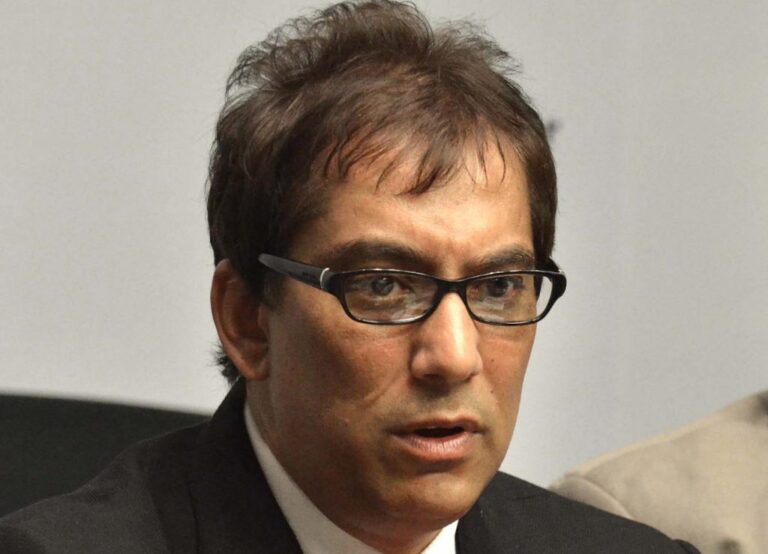Sekunjalo’s efforts to get to the bottom of the decision by several local banks to shut its accounts received a boost this week with a ruling by the Cape High Court that the Financial Intelligence Centre (FIC) must handover all documents pertaining to Sekunjalo, its subsidiaries, as well as those of EOH, Tongaat Hulett and others.
The banks cited reputational risk as the reason for closing the accounts, based largely on the findings of the 2020 Mpati Commission of Inquiry’s report into the Public Investment Corporation (PIC), which found the PIC had disregarded its policies and procedures in making investments in Sekunjalo subsidiaries.
ADVERTISEMENT
CONTINUE READING BELOW
Read: Sekunjalo group fights to keep bank accounts open
Judge Daniel Thulare of the Cape High Court gave the FIC 20 days to supply documents requested by Sekunjalo and ordered it to pay the costs of the case.
The FIC, which opposed the case, got some rough treatment from Judge Thulare for claiming Sekunjalo had not demonstrated a connection between the information it sought and the cause of action. “This statement seems to be deliberately contrary to what one ordinarily expects, which is that the applicants could only make the allegation complained of, as a fact, after they had access to the very reports that the FIC denied the applicants access to,” reads the judgment.
And there’s this: “The applicants in the case [Sekunjalo and its associates] have established their right to their information sought. Fairness and equity, and our constitutional values of openness and transparency, favours that [Sekunjalo] be granted access to the reports which the respondent banks provided to the FIC as regards reputational and business risk as well as [the] anti-bribery legal and regulatory framework.”
Sekunjalo Investment Holdings (SIH) chair Iqbal Survé responded: “This is a significant victory for us as we have maintained from the beginning that there has been no basis for any of our accounts to be closed, as there is no wrongdoing by any of our companies.
“The decision to close our accounts has been motivated by political interference and is tantamount to economic sabotage in an effort to destroy the country’s biggest black-owned media house, along with other Sekunjalo-owned entities.”
Sekunjalo argues that the closure, or threats to close, of its bank accounts was not based on objective evidence but on subjective desire under instruction. In a previous hearing before the Competition Tribunal in October 2023, the company argued that the banks’ claim of reputational risk was selectively applied. For example, FNB continued to bank JSE-listed EOH despite being cited prominently in the Zondo report into state capture. Other disgraced companies like Tongaat and Steinhoff continued to enjoy banking services.
The banks responded in these cases that the executives responsible for wrongdoing had been fired or replaced.
Sekunjalo is the proprietor of Independent Newspapers and dozens of other companies involved in fishing, property and technology, to name a few.
Read: It’s been a bad week for Sekunjalo in the courts
Finding in favour of Sekunjalo this week, Judge Thulare said constitutionally entrenched rights “will be emaciated and hollow” if institutions are not required to supply the information requested, where this relates to their achievement of equality, compliance with legislation and codes of practice.
ADVERTISEMENT
CONTINUE READING BELOW
Sekunjalo says it had asked the FIC on several occasions to provide it with documentary proof that the banks had complied with the Financial Intelligence Centre Act and submitted information to the FIC relating to concerns over Sekunjalo and how it conducts its business prior to closing its bank accounts. “As the FIC had not been forthcoming, Sekunjalo had no option other than to compel the FIC,” reads a statement by the company.
In addition to the FIC providing documentation, Sekunjalo will now also have access to the risk management and compliance programmes of Absa, FirstRand Bank, Investec, Nedbank and Standard Bank, all of which are cited as respondents in another case before the Equality Court.
In 2022, the Equality Court ruled in favour of Sekunjalo chair Iqbal Survé and 43 other respondents from the group, granting an interim order preventing Nedbank from closing its accounts. The judge agreed with Sekunjalo that a prima facie case of unfair discrimination had been established. Nedbank is appealing this ruling.
Following the latest ruling in the Cape High Court, Sekunjalo is also entitled to receive all reports of suspicious and unusual transactions made to the FIC by accounting institutions concerning EOH and its subsidiaries, KPMG, Steinhoff and Tongaat.
The company is suing the presidency and state organs for R75 billion. “The foundation of this suit is that the banks had no basis to close the accounts but were instructed to do so,” says the company.
It argues that the FIC documents will either prove or disprove its claims.
Independent Newspapers reported on Monday that another Sekunjalo group company, Sagarmatha, is suing the presidency and other state organs and regulatory bodies for R50 billion in damages “for deliberately withholding permission to list on a foreign exchange”. Despite attracting investment interest 2018 of about R50 billion, the SA Reserve Bank is claimed to have obstructed the company’s listing abroad. It was also denied a listing on the JSE “by a deliberate and malicious campaign to discredit Sagarmatha and Dr Iqbal Survé,” says the newspaper.

